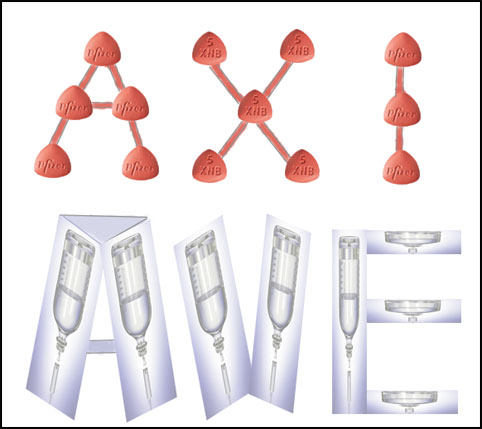Avelumab/Axitinib Combination Approved by the FDA
by Jay Bitkower on May 20, 2019The FDA approved the combination of avelumab (Bavencio), an anti-PD-1 antibody, and axitinib (Inlyta) for the frontline treatment of patients with advanced renal cell carcinoma last week.
The approval is based on results from the 886-patient, Phase III JAVELIN Renal 101 trial for which avelumab/axitinib demonstrated a 31% reduction in disease progression or death as compared with sunitinib (Sutent) in treatment-naïve, clear cell patients with metastatic disease.
Specifically, patients on the avelumab/axitinib arm had a median 13.8 months of PFS (progression-free survival) versus 8.4 months for sunitnib patients. The ORR (overall response rate: complete response + partial response) was 51.4% vs. 25.7% for avelumab/axitinib and sunitinib patients, respectively.
The investigators further stratified the results by those patients who were positive for the biomarker PD-L1. The ORR for avelumab/axitinib patients with the positive biomarker was 55.2% while the PFS remained at 13.8 months. This minimal improvement in response verifies results in other checkpoint inhibitor trials for kidney cancer, that, unlike those for melanoma and NSCLC, has not shown positive PD-L1 to be a reliable biomarker for RCC patients, many of whom respond to checkpoint inhibitors even with negative PD-L1.
OS (median overall survival) had not yet been reached on either arm at the time of analysis.
With respect to treatment-related Adverse Events (AEs), 71.2% and 71.5% of avelumab/axitinib and sunitnib patients, respectively, had Grade 3 or higher AEs. Adverse Events led to the discontinuation of both avelumab and axitinib in 7.6% of patients on that arm versus 13.4% of sunitinib patients.
The most common Adverse Events of any grade occurring in at least 20% of cases for avelumab/axitinib versus sunitinib, according to Pfizer’s press release https://tinyurl.com/y3gwsdpk, were diarrhea (62% vs 48%), fatigue (53% vs 54%), hypertension (50% vs 36%), musculoskeletal pain (40% vs 33%), nausea (34% vs 39%), mucositis (34% vs 35%), hand-foot syndrome (33% vs 34%), dysphonia (hoarseness, etc) (31% vs 3.2%), decreased appetite (26% vs 29%), hypothyroidism (25% vs 14%), rash (25% vs 16%), hepatoxicity (liver issues) (24% vs 18%), cough (23% vs 19%), dyspnea (breathing difficulty) (23% vs 16%), abdominal pain (22% vs 19%), and headache (21% vs 16%).
For the avelumab/axitinib arm, 9.0% of the patients had a Grade 3 or higher immune related events, the most frequent being for thyroid disorders, which were found in 24.7% of patients. High-dose steroids were administered to 11.1% of patients on the avelumab/axitinib arm who had an immune-related Adverse Event. Three people died of treatment-related toxicity on avelumab/axitinib versus one person on sunitinib.
This is the second FDA approval of a combination of an immunotherapy and a TKI drug that performed better than sunitinib, the other combination being pembrolizumab and axitinib. Together with the immunotherapy combination of ipilimumab and nivolumab, approved in April 2018, metastatic patients now have three new options for combination therapies with higher efficacy sunitinib, the standard therapy for metastatic RCC since early 2006. These combination therapies can have high toxicity so patients are advised to consult with their oncologist as to which one is best for them, possibly based on their co-morbidities.
The avelumab/axitinib combination for advanced kidney cancer is under review by the European Medicines Agency and has also been submitted to Japan by the co-marketers, Pfizer and Merck.




